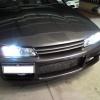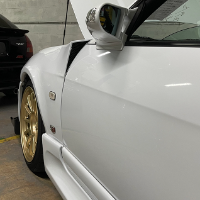Compression Test
Announcements
-
Similar Content
-
Latest Posts
-
Welp, good to know. Will have to wait awhile until steady hands with drills and taps are available. In other news, these just arrived! I will weigh them for posterity.
-
100% the factory sender is tapered, that is how it seals (well, that and teflon paste or tape)
-
Thanks folks - I've saved a few links and I'll have to think of potential cable/adapters/buying fittings. First step will be seeing if I can turn the curren abortion of a port into something usable, then get all BSPT'y on it. I did attempt to look at the OEM sender male end to see if it IS tapered because as mentioned you should be able to tell by looking at it... well, I don't know if I can. If I had to guess it looks like *maybe* 0.25 of a mm skinnier at the bottom of the thread compared to where the thread starts. So if it is tapered it's pretty slight - Or all the examples of BSPT vs BSPP are exaggerated for effect in their taper size.
-
Have a look at that (shitty) pic I posted. You can see AN -4 braided line coming to a -4 to 1/8 BSPT adapter, into a 1/8 BSPT T piece. The Haltech pressure sender is screwed into the long arm of the sender and factory sender (pre your pic) into the T side. You can also see the cable tie holding the whole contraption in place. Is it better than mounting the sender direct to your engine fitting......yes because it removes that vibration as the engine revs out 50 times every lap and that factory sender is pretty big. Is it necessary for you......well I've got no idea, I just don't like something important failing twice so over-engineer it to the moon!
-
Yup. You can get creative and make a sort of "bracket" with cable ties. Put 2 around the sender with a third passing underneath them strapped down against the sender. Then that third one is able to be passed through some hole at right angles to the orientation of the sender. Or some variation on the theme. Yes.... ummm, with caveats? I mean, the sender is BSP and you would likely have AN stuff on the hose, so yes, there would be the adapter you mention. But the block end will either be 1/8 NPT if that thread is still OK in there, or you can drill and tap it out to 1/4 BSP or NPT and use appropriate adapter there. As it stands, your mention of 1/8 BSPT male seems... wrong for the 1/8 NPT female it has to go into. The hose will be better, because even with the bush, the mass of the sender will be "hanging" off a hard threaded connection and will add some stress/strain to that. It might fail in the future. The hose eliminates almost all such risk - but adds in several more threaded connections to leak from! It really should be tapered, but it looks very long in that photo with no taper visible. If you have it in hand you should be able to see if it tapered or not. There technically is no possibility of a mechanical seal with a parallel male in a parallel female, so it is hard to believe that it is parallel male, but weirder things have happened. Maybe it's meant to seat on some surface when screwed in on the original installation? Anyway, at that thread size, parallel in parallel, with tape and goop, will seal just fine.
-





Recommended Posts
Create an account or sign in to comment
You need to be a member in order to leave a comment
Create an account
Sign up for a new account in our community. It's easy!
Register a new accountSign in
Already have an account? Sign in here.
Sign In Now